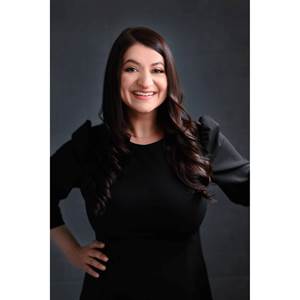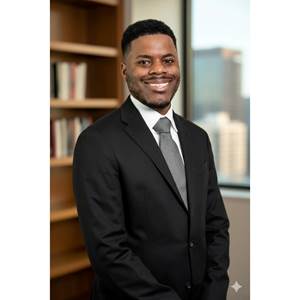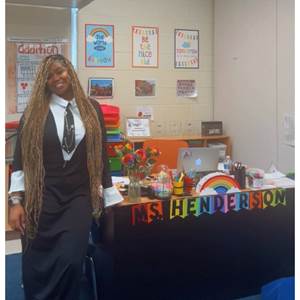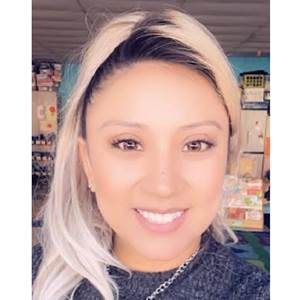Take Five with Priscilla Gonzalez, Dual Language Coordinator at Cooper Dual Language Academy
19 September 2025
Ms. Gonzalez's goal is for students to graduate with improved bilingual and biliterate skills and an appreciation for other cultures.
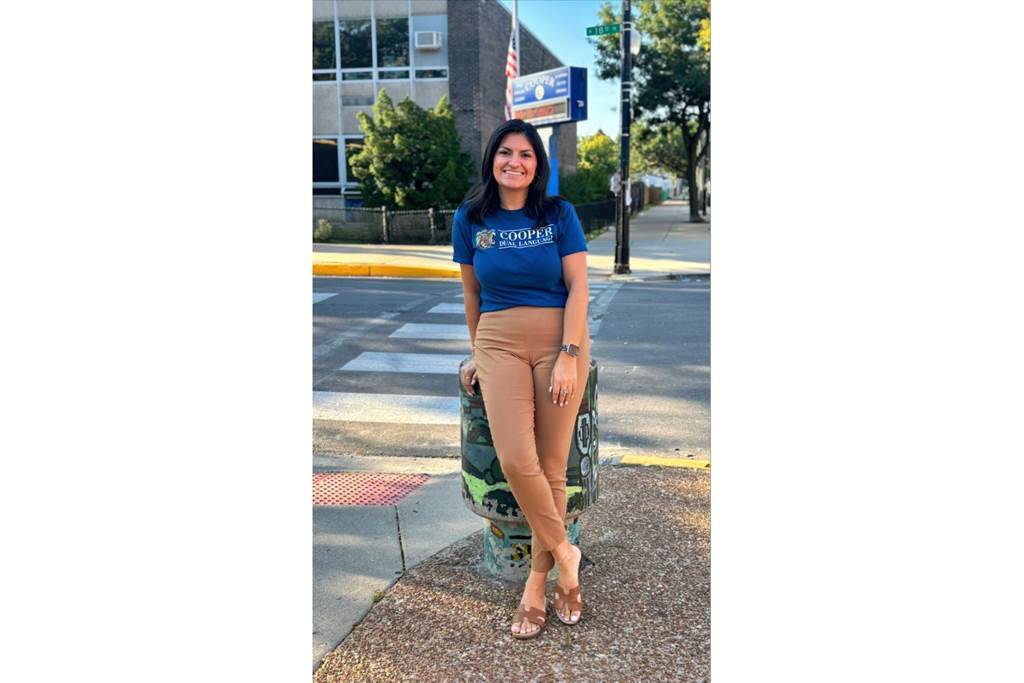
Take Five is a series that highlights some of the many members of the CPS community who are going above and beyond for our schools. If you know someone who is making a difference, nominate them to be featured here.
Meet Ms. Priscilla Gonzalez, the Dual Language Education Program Coordinator at Cooper Elementary!
As a CPS alum, Ms. Gonzalez describes becoming an educator as being part of her DNA. Growing up, she recalls always being willing to give her peers and younger family members a helping hand with schoolwork. So, becoming a teacher felt like her natural calling.
“When I decided to become a teacher, I thought the best way to give back to my community would be to work not just in CPS, but at the school where I was a student myself,” she says. “I was lucky enough to do so when I first started teaching at Carson Elementary in the Gage Park Community, where I grew up.”
After eight years in the classroom at Carson, Ms. Gonzalez sought the opportunity to become the Dual Language Coordinator at Cooper Elementary in Chicago’s Pilsen community. In this role, she oversees curriculum and assessments, and provides professional development to teachers and staff to ensure high-quality instruction and successful bilingual and biliterate outcomes for students.
Read more about Ms. Gonzalez below!
What is the goal of the Dual Language Program at Cooper?
Cooper’s Dual Language Program is an 80/20 One-Way Model; students start with 80% of instruction in Spanish, and every year we add on a little bit more of the English until we get to that 50/50 balance starting in fourth grade. One of our many goals is to maintain our students’ native language, which helps them keep connections with family and community members while growing their English proficiency at the same time. By fifth grade, we begin to see students more comfortable in both languages.
We hope that by the time students graduate, regardless of whether or not they continue their Dual Language education, they're able to use the strategies they learned at Cooper when learning another language or communicating with someone who speaks a different language. We also want students to leave here with an appreciation for other cultures. This appreciation, combined with their bilingual and biliterate skills, makes them more marketable in the outside world and equips them to be globally competitive citizens.
How has Cooper’s dual-language program benefited the school community as a whole?
One of the three pillars for dual language programs is social and cultural competence, and we see that at Cooper every day. Students from Spanish-speaking households feel safer and more comfortable sharing their thoughts and communicating their ideas amongst their peers and staff in dual-language classrooms, because they know that their native language is valued. I’ve also seen an incredible impact from our newcomer students. Linguistically, they’ve brought so much with them, and have created a classroom environment where students learn from each other.
What is your favorite part of your job?
My favorite part is helping others! I love sharing my knowledge and expertise, and when I was in the classroom, I enjoyed witnessing students have that “light-bulb” moment in learning when they finally understand a concept. It's similar now, working with adults. I enjoy helping educators and witnessing them have those moments, too.
I’m also grateful for the opportunities that have been given to me with other learning communities, whether it's our network PLC, our district meetings, or conferences like NABE or La Cosecha, where I can bring back learning to share with our educators. I'm building my capacity so that I can build theirs, and so that together, we can impact a broader range of students.
What advice do you have for new bilingual educators?
The most important thing is to build connections with the students. Reflecting on my time as a CPS student, when there weren’t many educators I could see myself in, made me aware of the importance of nurturing students’ identities in the classroom. Even if you don't share the same background, acknowledging a child’s culture and highlighting their value to the classroom environment or the community can make a significant difference. Once you establish a connection with bilingual students, they feel safe, and that’s when they're most likely to learn.
In celebration of Hispanic Heritage Month, what is a message you’d like to share with the community?
Hispanic Heritage Month is a time to acknowledge those who have made an impact in our communities, in our city, and in our schools. Hispanic and bilingual learners are a valuable part of our society, and we should celebrate their contributions this month and throughout the year. Be proud of where you come from, and even if you're not part of the Hispanic community, take pride in our differences and recognize that we all bring a rich culture and diverse perspective to our students.
Related Stories
13 February 2026
Take Five with Lilian Blaser: Manager of Professional Learning with the Department of Arts Education
Lilian is deeply empathetic and quick to uplift the people around her.
06 February 2026
Take Five with Dr. Mark Clayton, School Counselor at King College Prep
Dr. Clayton's favorite part of his work is supporting students and building community with counselors at King and around the district.
04 February 2026
Reaching One Career Goal after Another
Ms. Henderson is hoping to expand her leadership skills further and make an even greater impact at her school.
29 January 2026
Staying Positive and Taking On a New Opportunity
Ms. Barajas loves the strong sense of community at her school.

